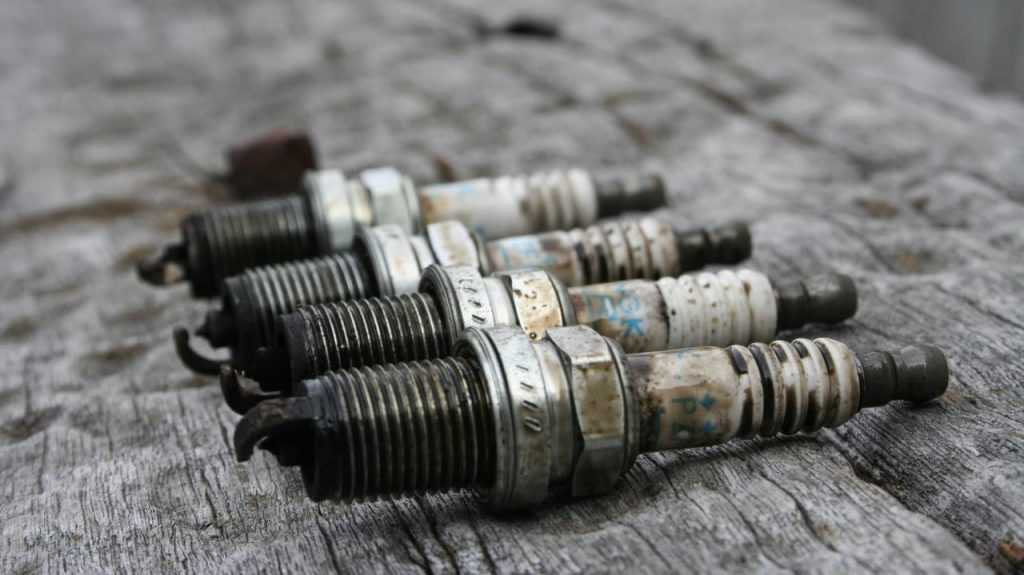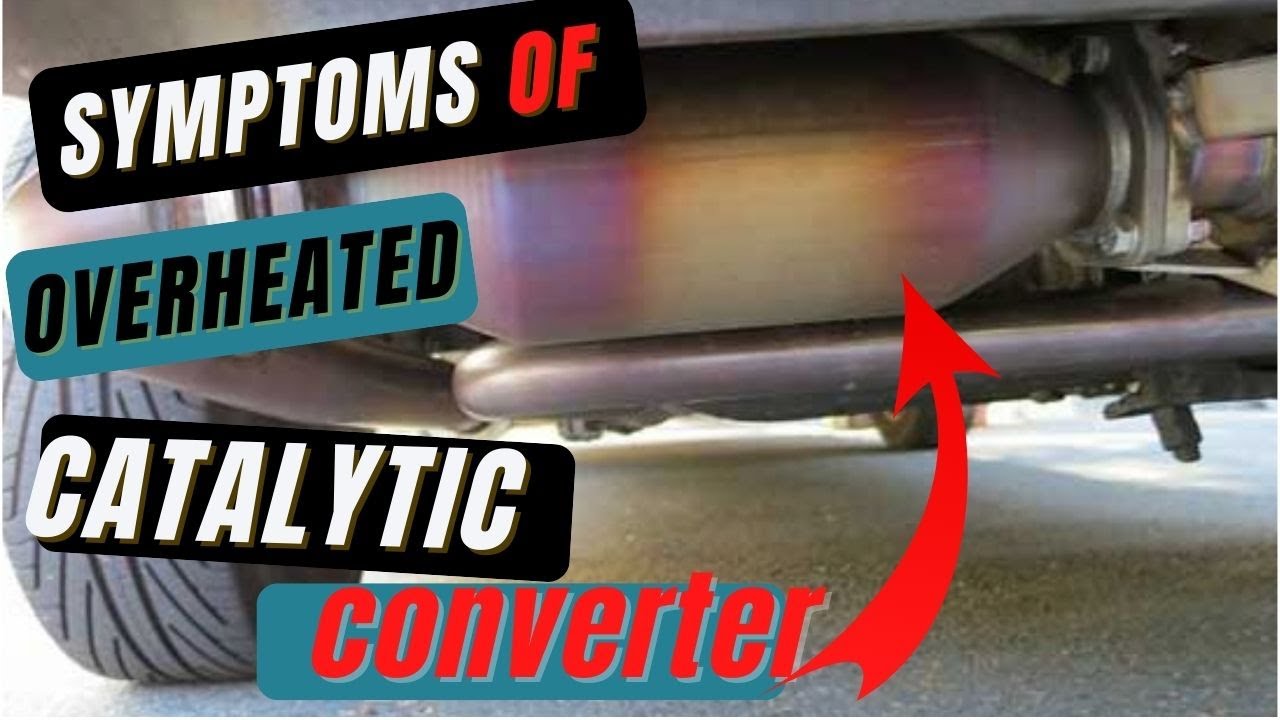A clogged catalytic converter can cause a car to overheat due to restricted exhaust flow. Is your car experiencing overheating issues?
One potential culprit could be a clogged catalytic converter. This important component in your exhaust system helps reduce harmful emissions, but when it gets clogged with debris, it can restrict exhaust flow and lead to engine overheating. The restricted flow of exhaust gases prevents the engine from cooling properly, causing it to overheat.
If you notice your car’s temperature gauge rising, engine misfires, or a rotten egg smell coming from your exhaust, it’s crucial to have your catalytic converter inspected and possibly replaced to avoid further damage and costly repairs. We will explore the causes, symptoms, and steps to address a clogged catalytic converter, helping you keep your vehicle running smoothly and efficiently.
Why Car Overheating Is A Serious Concern
Car overheating is a serious concern that can be caused by a clogged catalytic converter. This issue can lead to engine damage and potential breakdowns, emphasizing the importance of addressing it promptly.
Engine overheating is a significant issue and must be addressed promptly to avoid further damage to your car. Maintaining the proper engine temperature is crucial for optimal performance and longevity. When the engine overheats, it can lead to a myriad of problems that can affect the overall functioning of your vehicle.
One of the main effects of engine overheating is a reduction in car performance. The excessive heat can cause the engine oil to break down, resulting in poor lubrication. This, in turn, can lead to increased friction and wear on engine components, leading to decreased power and efficiency.
Additionally, overheating can cause the cylinder head to warp or crack, leading to costly repairs or even engine failure. The increased temperature can also damage the catalytic converter, affecting the emission control system and resulting in a failed inspection.
Preventive maintenance is key to avoiding engine overheating. Regularly checking the coolant level and ensuring proper coolant mix, inspecting the radiator and fans for any issues, and keeping the engine properly tuned can help prevent overheating and prolong the life of your vehicle.
Common Causes Of Car Overheating
A clogged catalytic converter can indeed cause a car to overheat. However, there are several other common causes of car overheating to consider. One of the main reasons is failed cooling system components. If any part of the cooling system, such as the radiator or water pump, malfunctions, it can lead to overheating. Another cause could be insufficient coolant levels. The coolant is responsible for regulating the temperature of the engine, and if there is not enough coolant, the engine can overheat. Additionally, a malfunctioning thermostat can also contribute to car overheating. The thermostat regulates the flow of coolant, and if it fails to open or close properly, it can disrupt the cooling process. Therefore, it is crucial to address these issues promptly to avoid further damage to your car’s engine.
Understanding The Role Of A Catalytic Converter In Car’s Cooling System
Understanding the Role of a Catalytic Converter in Car’s Cooling System
A catalytic converter is an essential component of a car’s exhaust system. Its primary function is to reduce harmful emissions produced by the engine, converting them into less harmful substances through a chemical reaction. This article aims to explore the role of a catalytic converter in a car’s cooling system and answer the question of whether a clogged catalytic converter can cause a car to overheat.
How a Catalytic Converter Helps Regulate Engine Temperature:
The catalytic converter itself does not directly contribute to a car’s cooling system. However, its efficient functioning is crucial for the overall performance of the engine. A clogged catalytic converter can restrict the flow of exhaust gases, resulting in increased backpressure. This increased backpressure can adversely affect engine performance, leading to overheating. It is important to promptly address any issues with the catalytic converter to ensure smooth engine operation and prevent overheating.
Can A Clogged Catalytic Converter Cause A Car To Overheat?
A clogged catalytic converter can indeed cause a car to overheat. The significance of a clogged catalytic converter cannot be overlooked, as it plays a crucial role in the proper functioning of a vehicle’s exhaust system. When the converter becomes clogged, it restricts the flow of exhaust gases, leading to increased back pressure and reduced engine performance. The clog prevents the engine from expelling hot gases efficiently, resulting in excessive heat buildup within the engine compartment. Consequently, the engine temperature rises, leading to overheating.
There are several signs that indicate a clogged catalytic converter. These include a noticeable decrease in engine power, decreased fuel efficiency, and an unpleasant sulfur smell emitting from the exhaust. Additionally, a clogged converter can cause the engine to misfire or stall, leading to further complications.
One of the areas greatly impacted by a clogged catalytic converter is the engine cooling system. The converter’s restriction can disrupt the flow of coolant, hindering proper heat dissipation and causing the engine temperature to rise. This can result in severe damage to engine components and should be addressed promptly to prevent further problems.
Effects Of Overheating On A Catalytic Converter
Excessive heat can have detrimental effects on a catalytic converter, potentially causing it to become clogged and damaged. When a car overheats, the high temperatures can lead to the melting or distortion of the catalytic converter’s internal components, such as the catalyst and substrate. This can obstruct the exhaust flow, resulting in reduced engine performance, higher fuel consumption, and increased emissions.
Ignoring overheating issues can result in severe consequences for the catalytic converter. The excessive heat can cause the catalytic converter to break down over time, leading to a loss of efficiency and functionality. As a result, the vehicle may fail to meet emission standards and may even experience a loss of power or engine stall.
To prevent these issues, it is crucial to address any overheating problems promptly. Regular maintenance and temperature monitoring can help identify potential issues before they escalate, ensuring the longevity and optimal performance of the catalytic converter.

Credit: carfromjapan.com
Diagnosing A Clogged Catalytic Converter
A clogged catalytic converter can indeed cause a car to overheat. It’s important to recognize the symptoms of a clogged catalytic converter to prevent further damage to your vehicle. One common symptom is a significant decrease in engine power. This is often accompanied by difficulty accelerating and a noticeable drop in fuel efficiency. Another telltale sign is a rotten egg smell emanating from the exhaust system. Additionally, you may notice dark exhaust smoke or hear a rattling noise coming from underneath the car.
To diagnose a clogged catalytic converter, you can perform a few simple diagnostic steps. Firstly, check the temperature of the catalytic converter using an infrared thermometer to see if it exceeds normal levels. Secondly, you can tap the converter gently with a rubber mallet and listen for any rattling sounds. Finally, a pressure test using a vacuum gauge can provide insight into the exhaust system’s condition. If these tests confirm a clogged catalytic converter, it’s crucial to seek professional assistance to unclog or replace it promptly.
Addressing A Clogged Catalytic Converter And Overheating Issues
A clogged catalytic converter can indeed cause a car to overheat. The converter plays a crucial role in the exhaust system by reducing harmful emissions. When it becomes clogged, the flow of exhaust gases is restricted, leading to increased back pressure. This excessive back pressure can cause the engine to overheat, especially during high RPMs or under heavy load.
Repairing or replacing a clogged catalytic converter is essential to address overheating issues. Professionals can diagnose the problem by conducting a back pressure test and inspecting the converter for damage or clogging. If necessary, they can repair the converter by removing the blockage or replace it with a new one.
To prevent future catalytic converter clogs, regular car maintenance is crucial. This includes routine inspection of the converter, checking for engine performance issues, keeping up with oil changes, and using high-quality fuel. Maintaining a healthy engine and exhaust system will help ensure proper operation of the catalytic converter and prevent overheating.
In conclusion, a clogged catalytic converter can cause a car to overheat due to increased back pressure. Addressing the issue promptly by repairing or replacing the converter, along with practicing regular car maintenance, is vital to prevent overheating problems in the future.
Conclusion
Therefore, if you notice your car overheating, it’s important to consider the possibility of a clogged catalytic converter. This component plays a vital role in the exhaust system, and when obstructed, it can lead to increased back-pressure and higher operating temperatures.
By addressing the issue promptly, you can prevent further damage to your vehicle’s engine and ensure efficient performance. Regular maintenance and inspections are key to identifying and resolving any potential problems with your catalytic converter.

